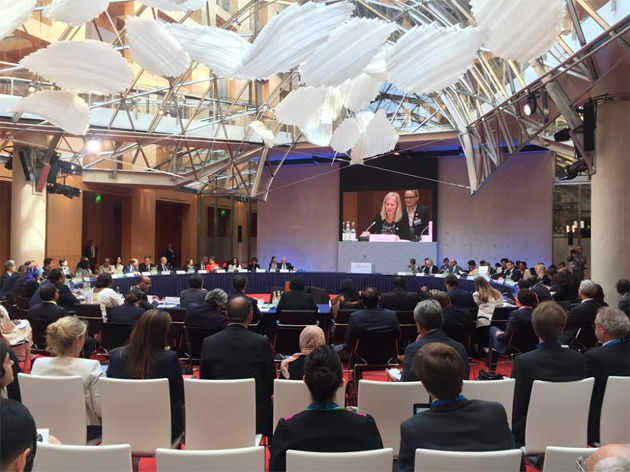The opening plenary of the 23rd Conference of Parities (COP) to the United Nations Framework Convention on Climate Change (UNFCCC) provided a flicker of hope to the poor and vulnerable people in the developing countries who are most at risk to the adverse impacts of climate change.
The much forgotten, pre-2020 agenda, under which developed countries are to ratify the second commitment period of the Kyoto Protocol (KP II) to undertake greenhouse gas emission cuts and also provide finance and technology support to developing countries for enhancing their ambition, found a place in the COP 23 agenda.
Meeting the long-term temperature goal of limiting the temperature rise to 2°C by the end of century requires strong short-term action. Enhanced pre-2020 action will reduce the overall costs and economic challenges for making a transition to low carbon growth pathway and also reduce climate risks and help realize immediate co-benefits such as improved public health as a result of lower air pollution, improved energy security, reduced crop yield losses among others.
India along with the Like Minded Developing Countries (LMDC) group strongly voiced the need for urgent time bound action on climate change by developed countries in the pre-2020 period to build trust and confidence for ambitious climate action in post 2020 era. In his intervention, Chief Negotiator of India on Climate Change, Mr. Ravi S. Prasad, called for early time-bound ratification of KP II by developed countries to ensure the highest possible mitigation efforts under the Convention by all Parties. He further added that this agenda is of utmost importance for developing countries and is not new but was agreed upon and under discussion since 2007. While action on Post-2020 period under the Paris Agreement has gained momentum, the discussions on Pre-2020 actions have lagged behind.
COP 23 is critical and maybe the last chance for the developing countries to fight for their right to development and the global carbon space by ensuring that the developed countries act on their pre-2020 commitments. It is the foundation upon which climate action should be built after the year 2020.


